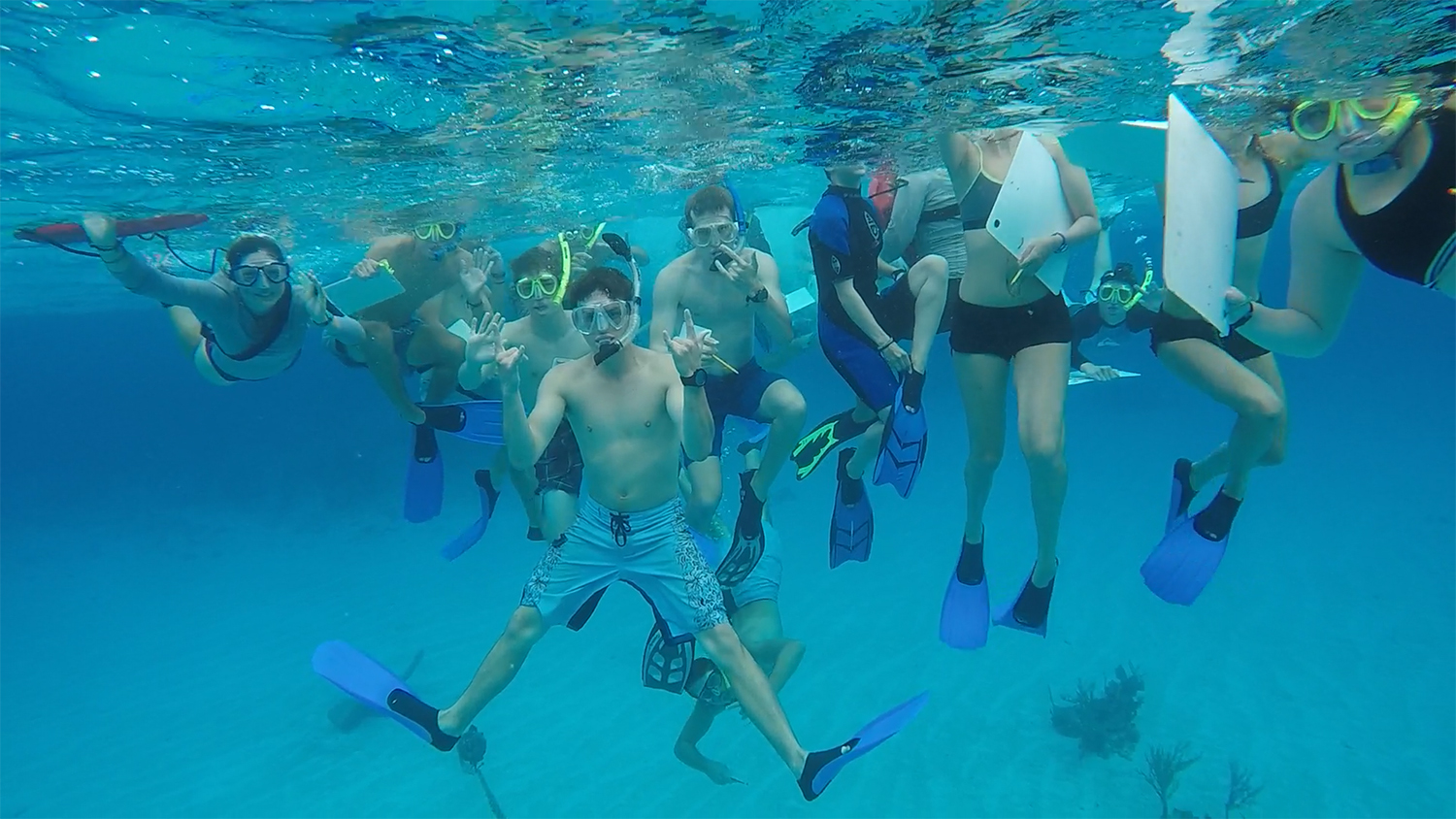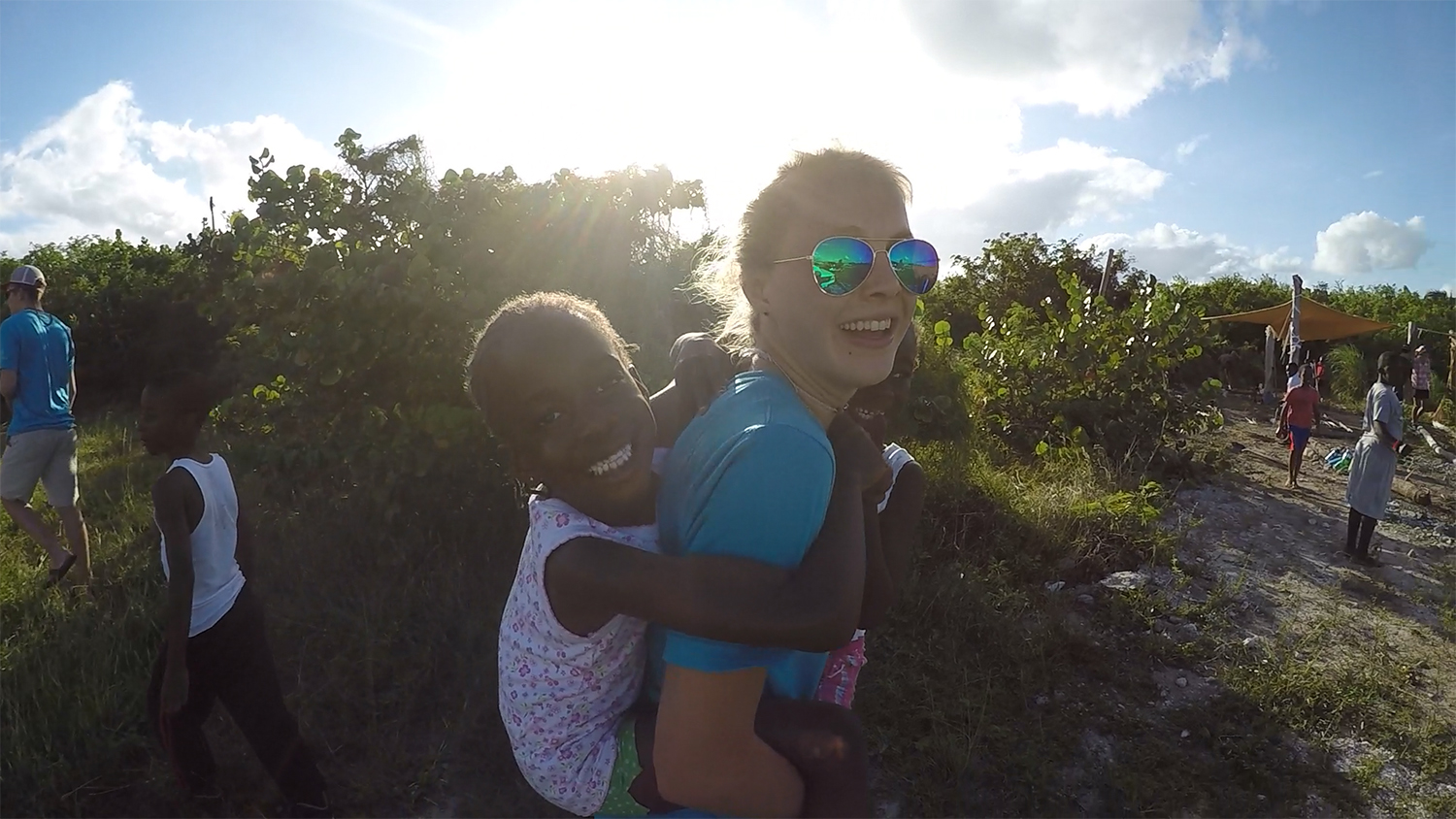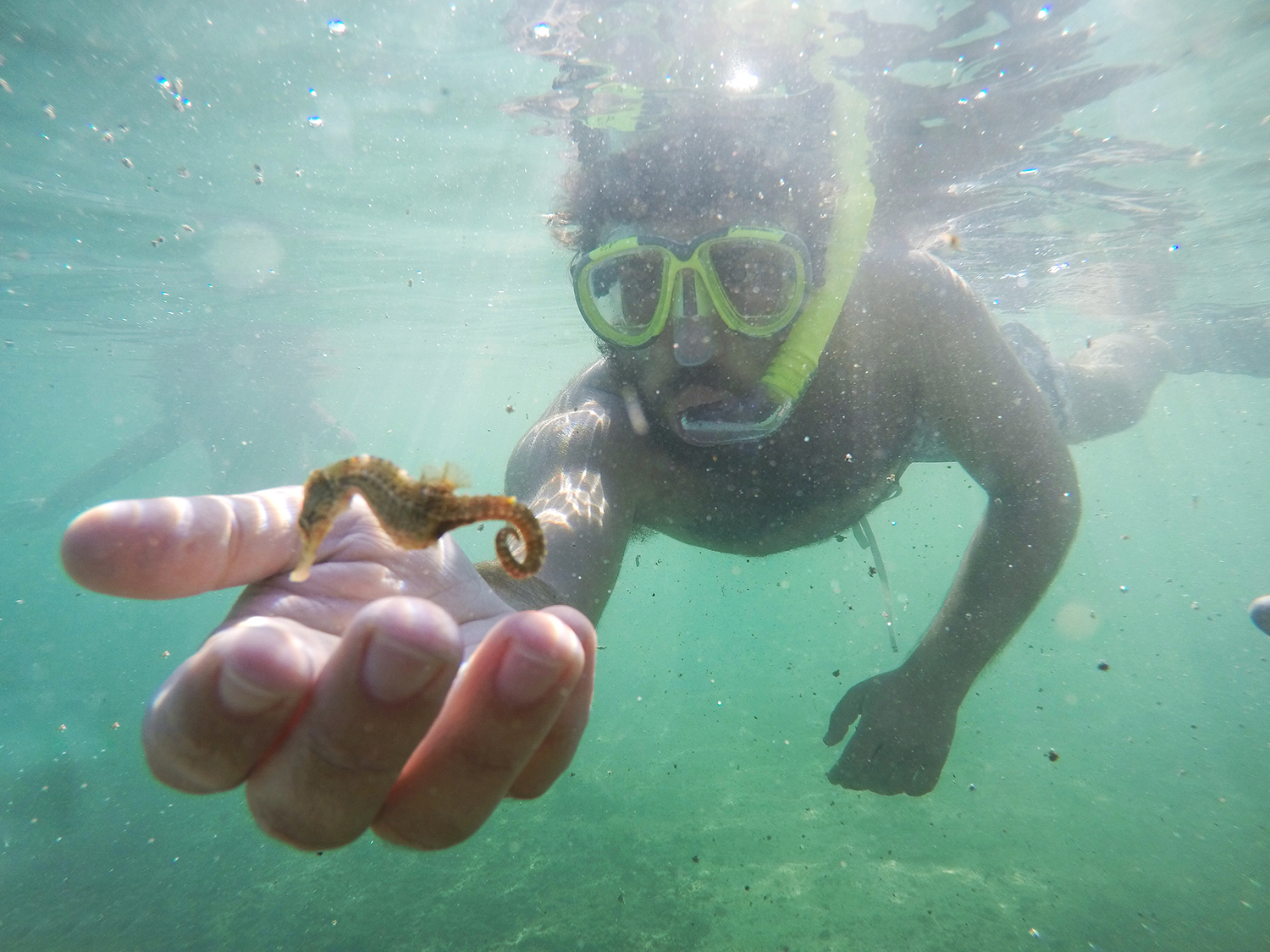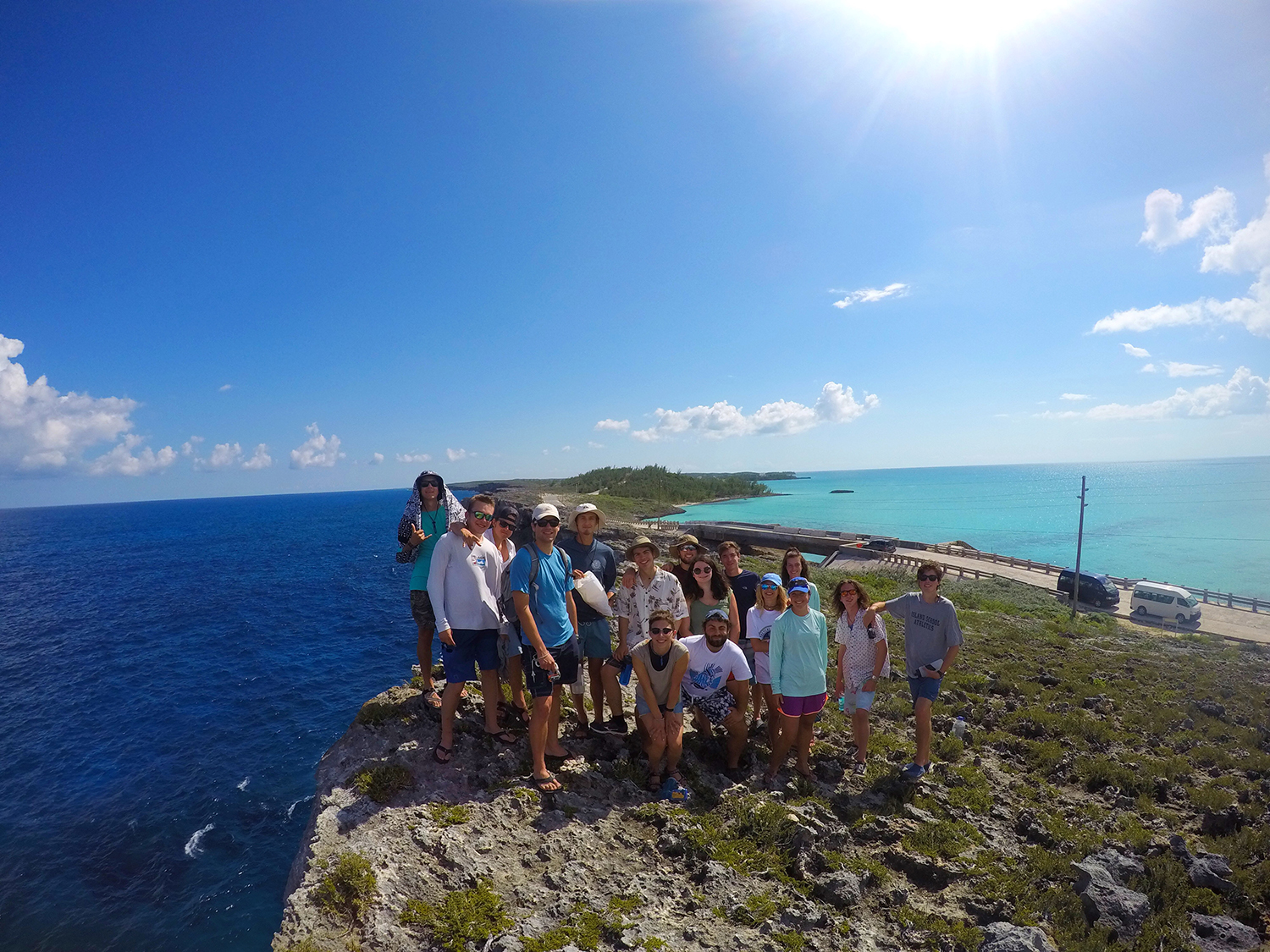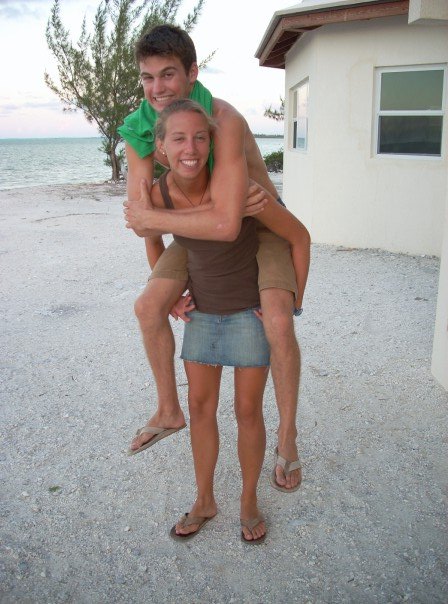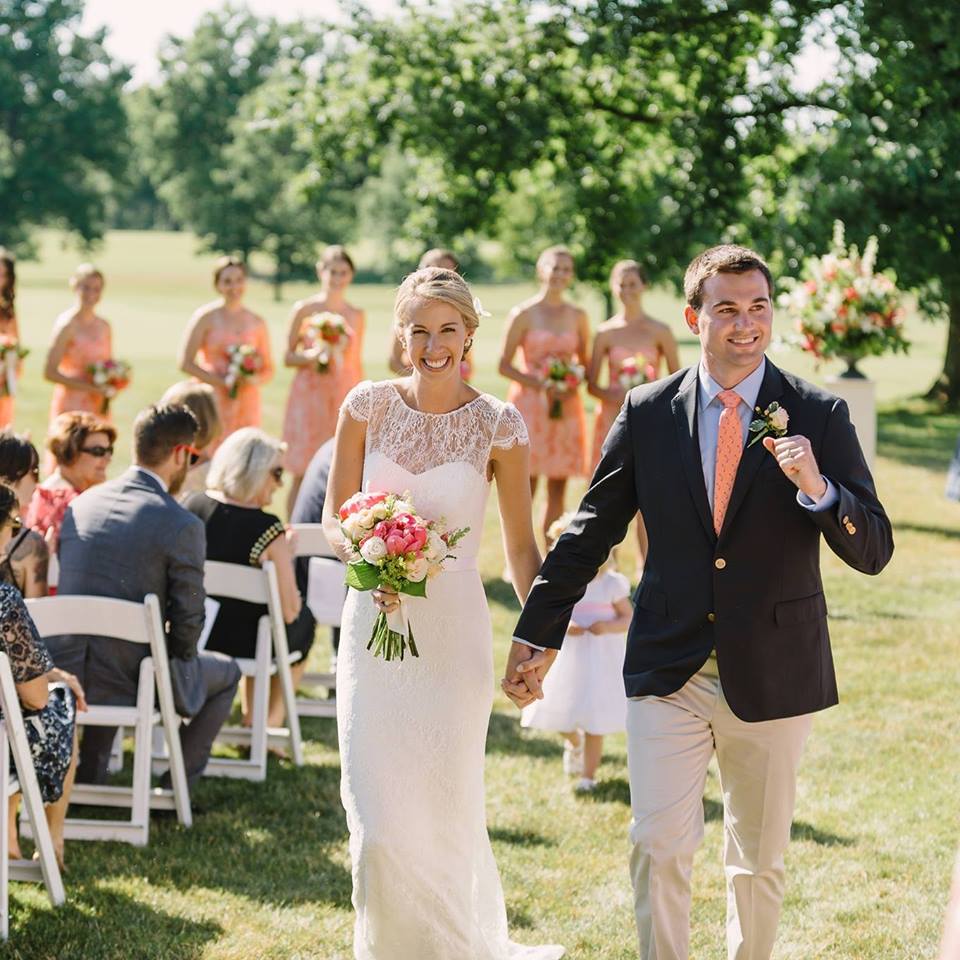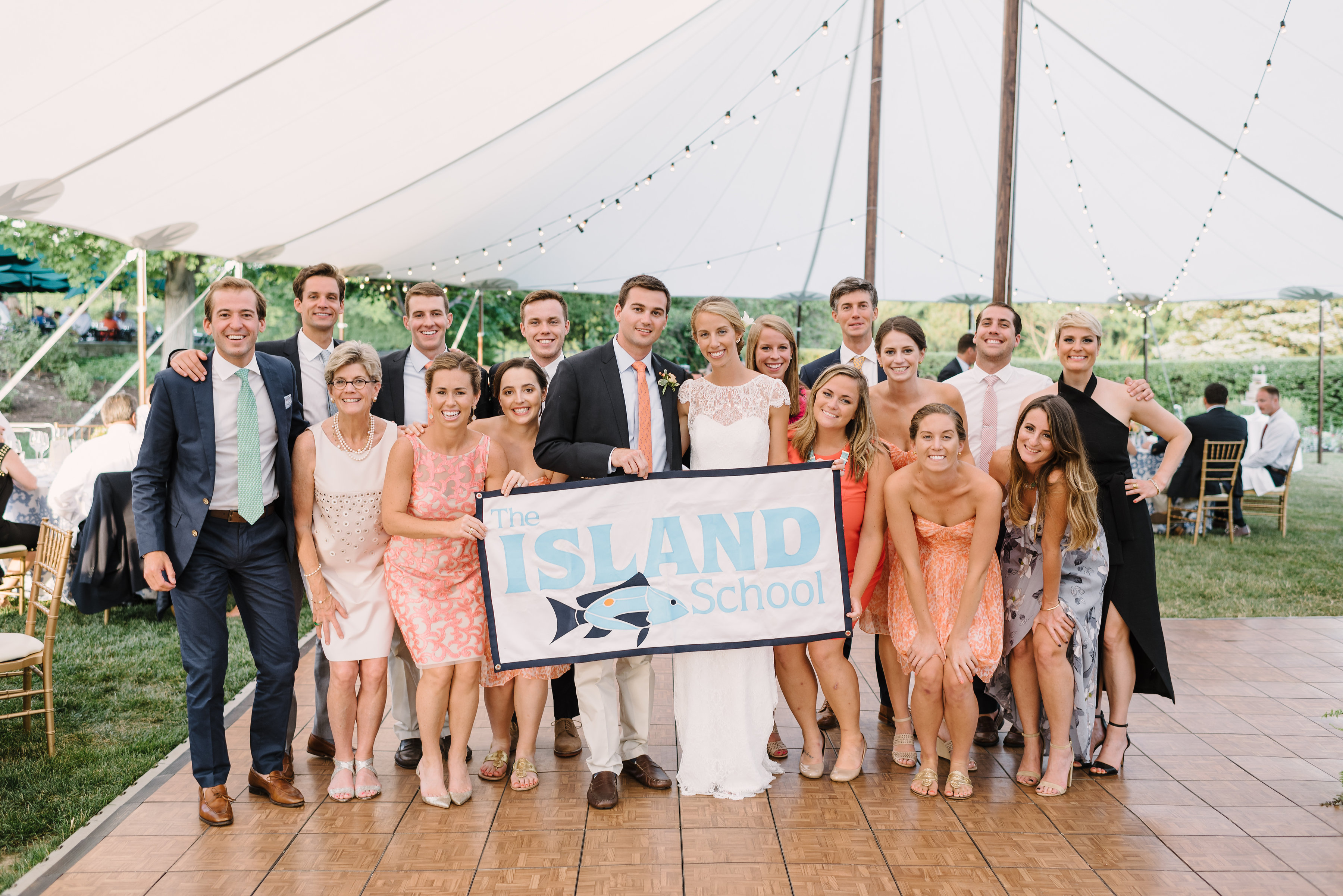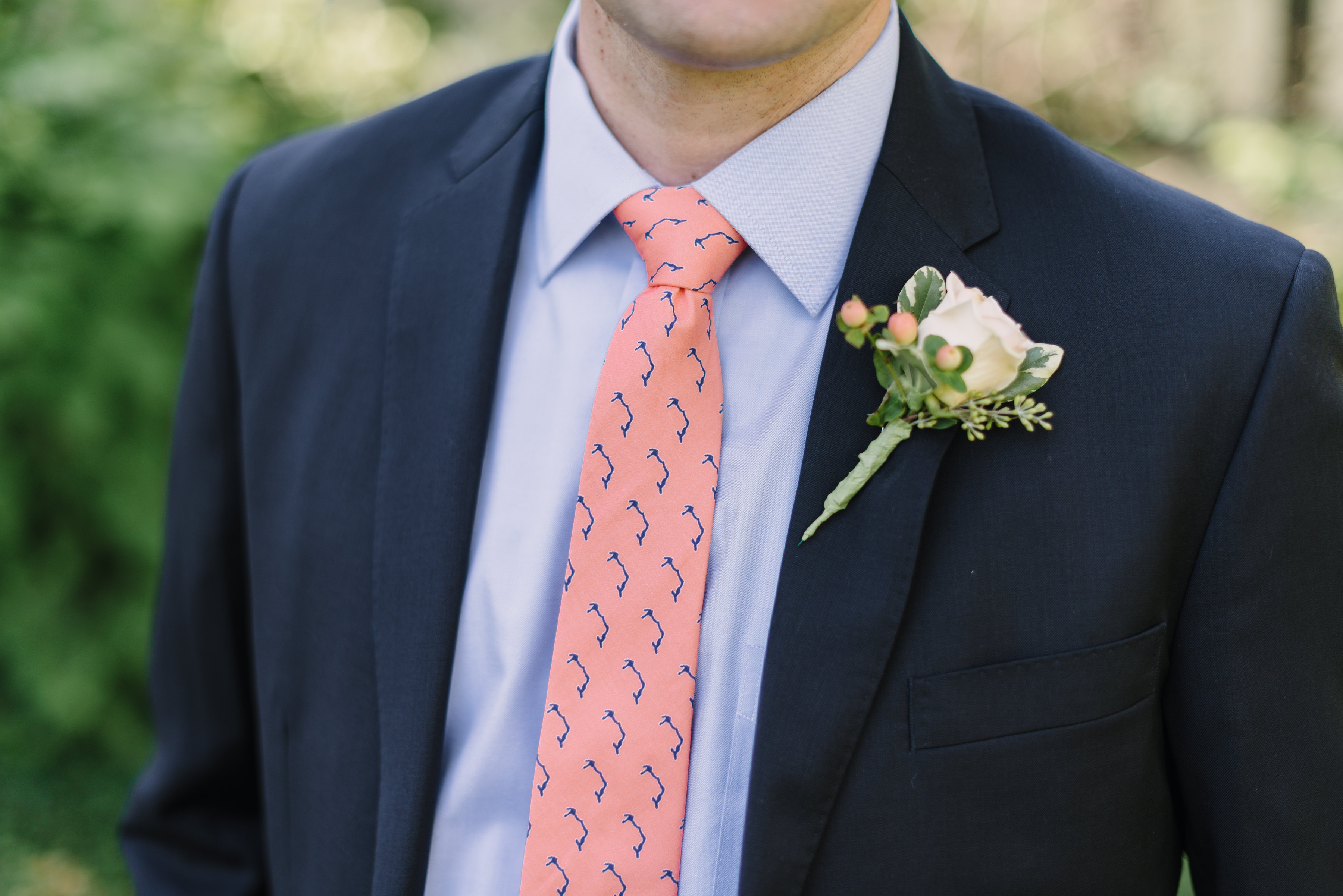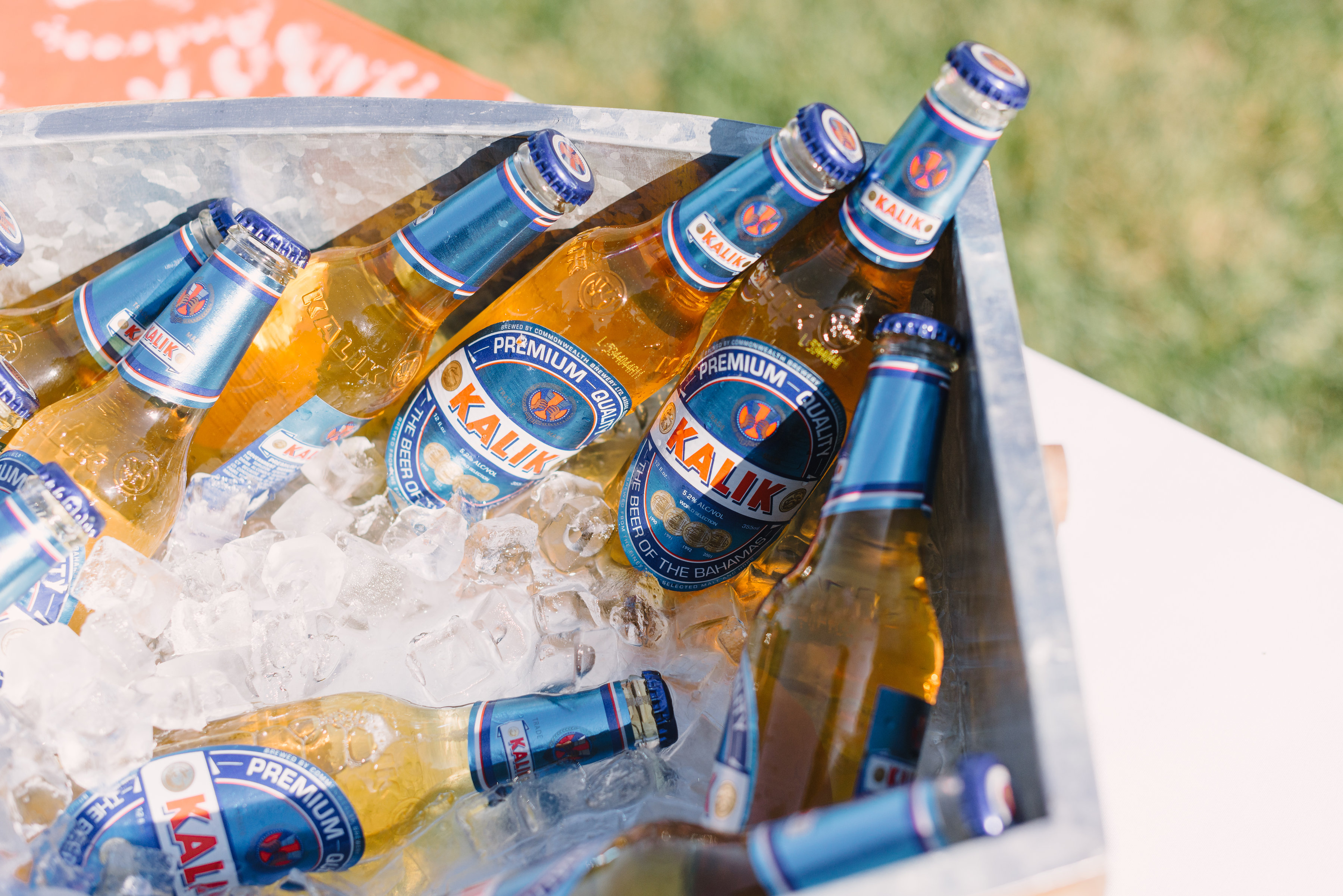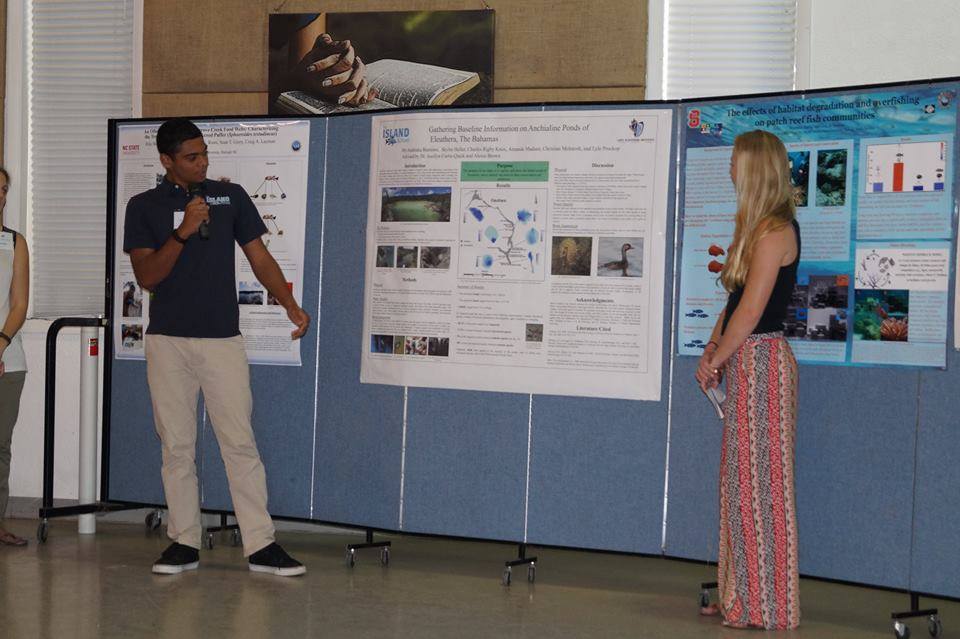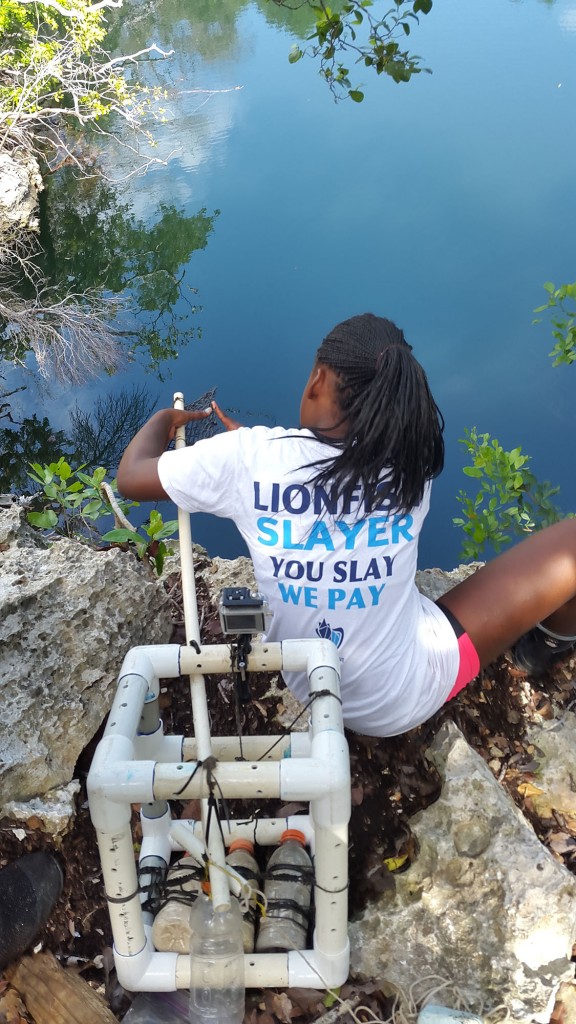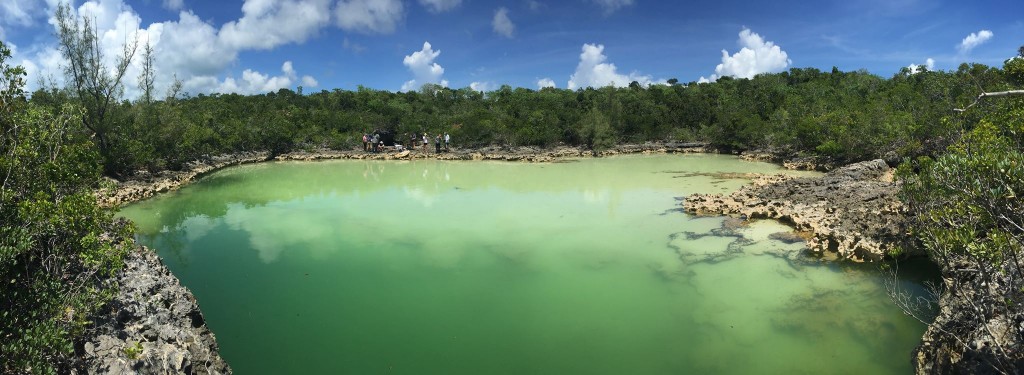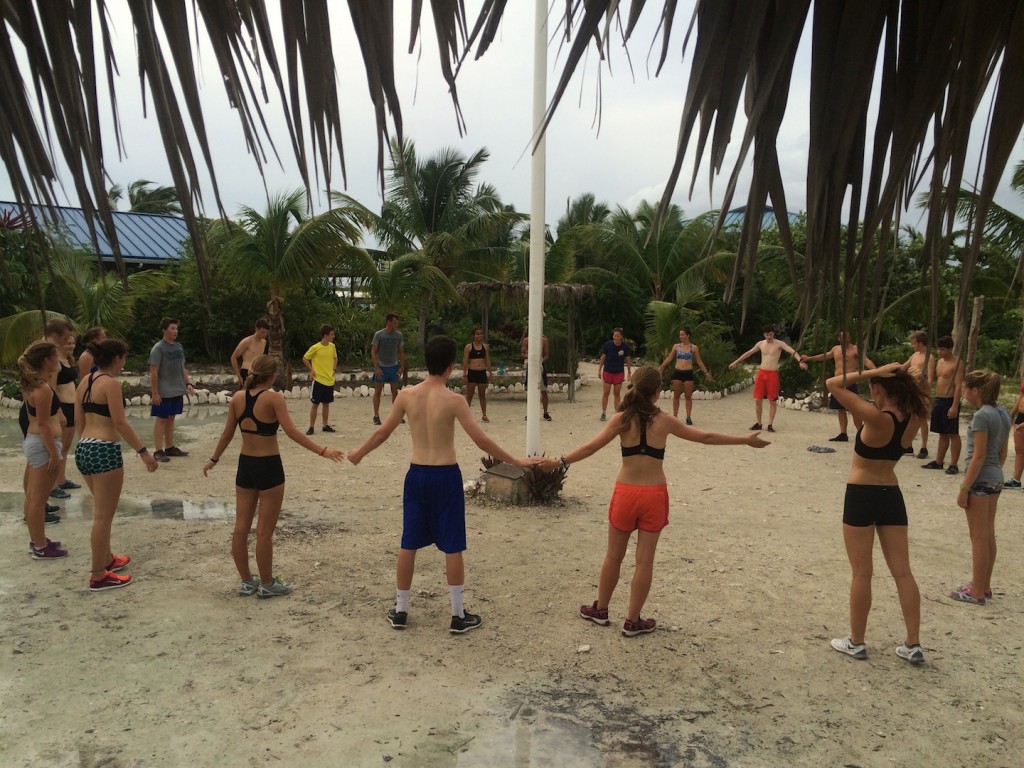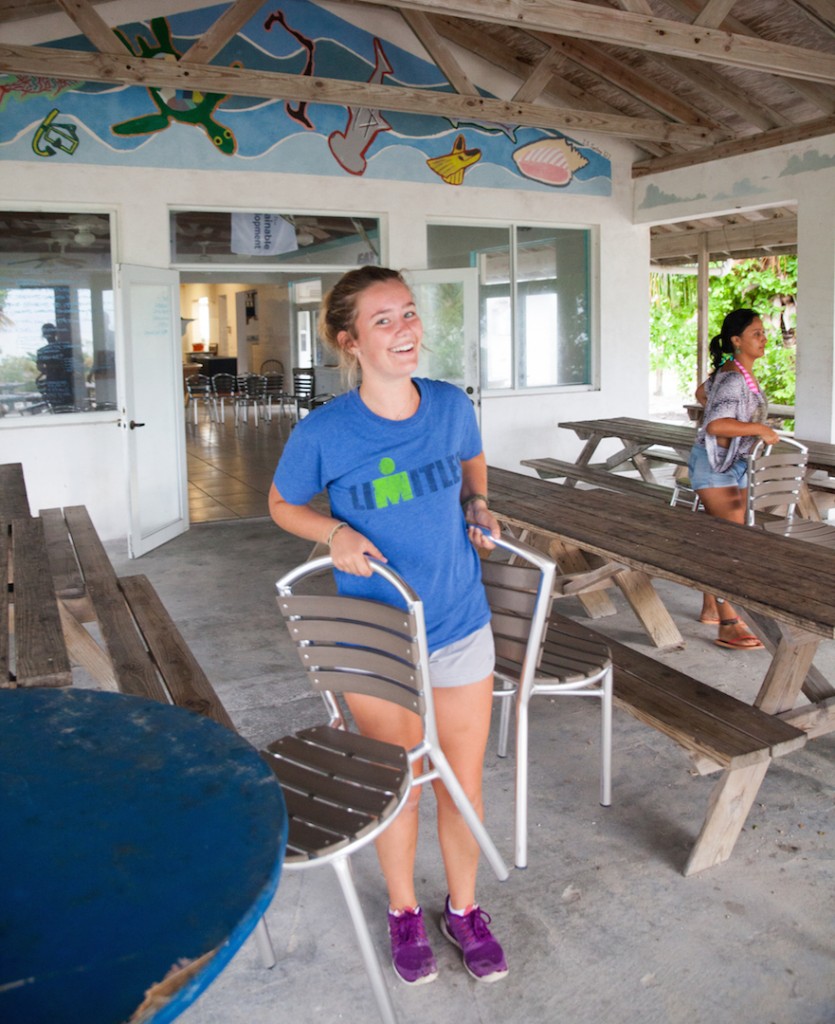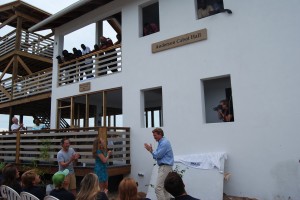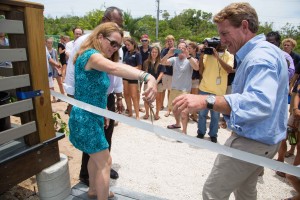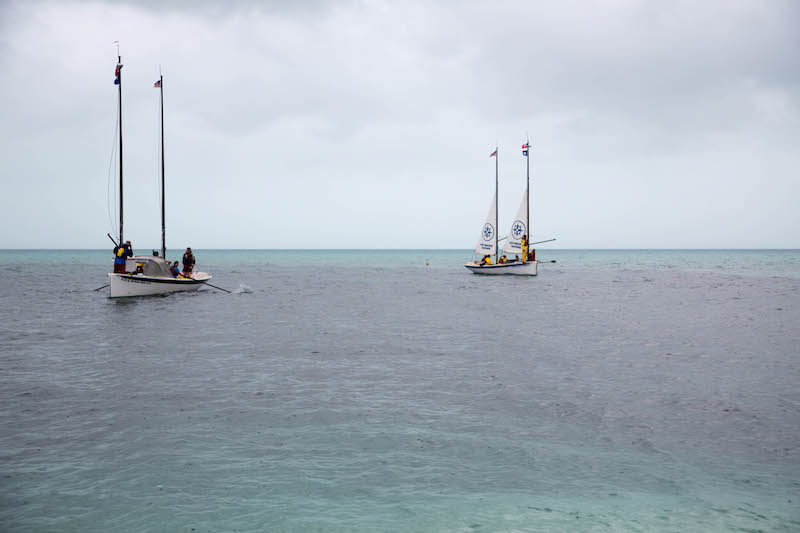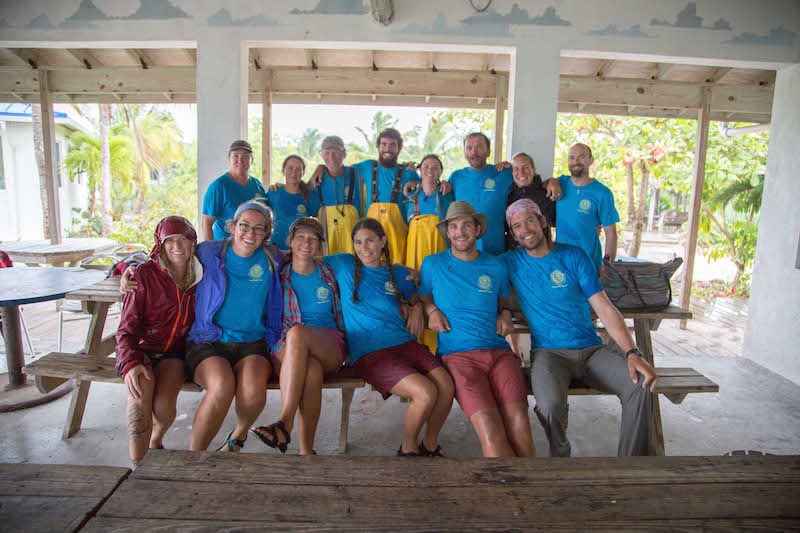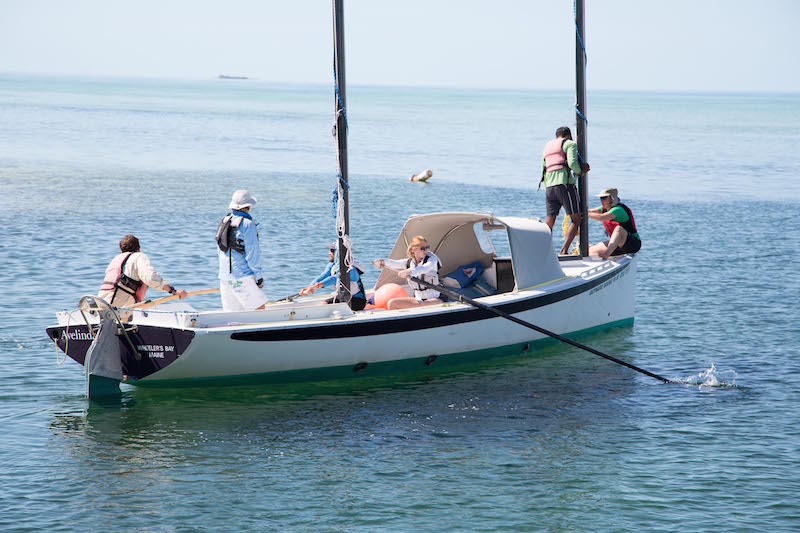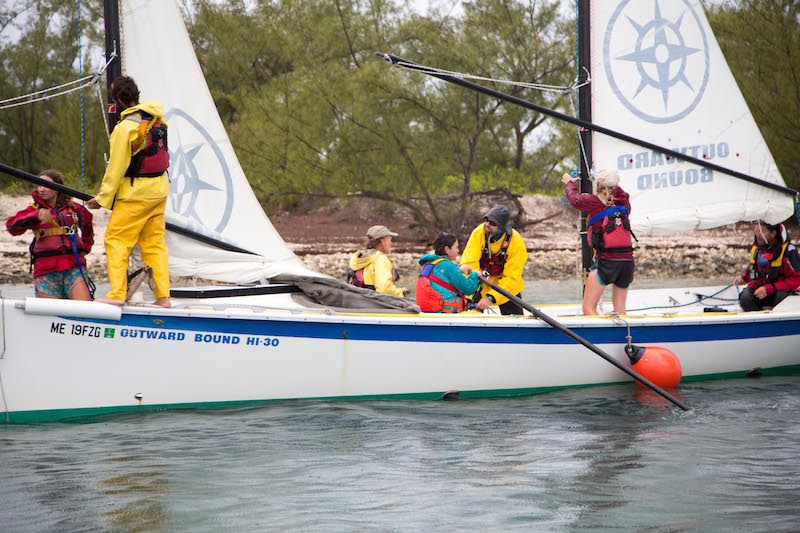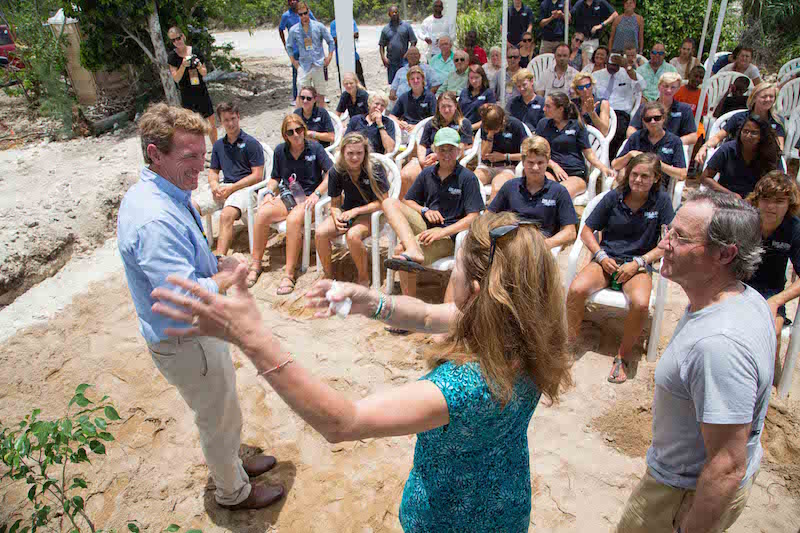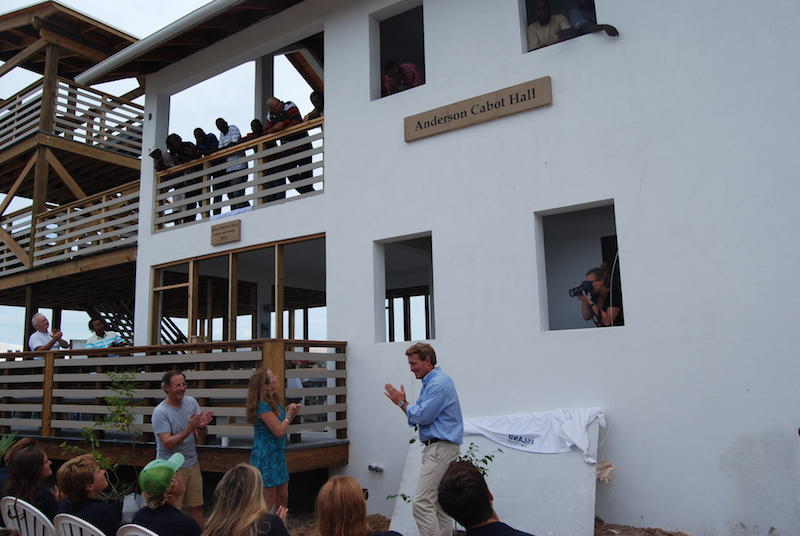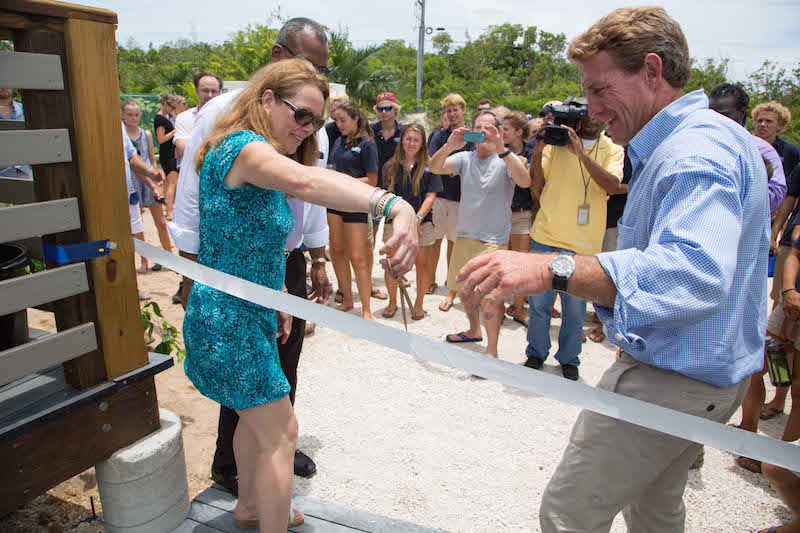All nine research groups here at The Island School have different components that make them unique to their purpose of study, and very interesting to those who are partaking in them. Island School students team up with CEI researchers and interns who come from international backgrounds and strive for excellence in their particular fields of study.
From gathering information on a diverse range of landlocked anchialine ponds to catching deep sea sharks five kilometres offshore, research at the Island School doesn’t only provide answers to unsolved scientific mysteries, but also allows Island School students to develop an intimate relationship with science research as it coincides with “hands on education.”
Ponds Assessment
There are approximately 200+ Anchialine ponds on Eleuthera, yet, there is very little information about these ponds in scientific publications. The inland ponds are unique in their structure and thriving ecosystems that often contain endemic life. The large number of unique species in the ponds are a result of the isolation and the environmental conditions of each ecosystem. Inspired by the seahorses found in one pond, researchers at CEI set out to explore the other ponds on the island. In this research project, baseline information on the water quality, the level of human disturbance and the life present is collected at each pond site. This information will help to support future conservation efforts.
Deep Sea Sharks
Deep-sea shark populations are under global threat due to human activity such as fishing and mining. Therefore studies must be conducted in an attempt to understand deep sea sharks. The group aims to investigate vertical habitat use in Exuma Sound’s deep-sea sharks using satellite tags which record 2 minute resolution, temperature and depth data for each subject. The three target species are Cuban dogfish, Bigeye Sixgills, and Gulper Sharks. Animals are caught on 800 – 850 meter longlines before being brought up to the boat, at which time a satellite tag is attached through the animal’s dorsal fin.The animals are then released in an anti-predation release cage. This work will identify depth boundaries and vertical habitat use in cosmopolitan deep-sea sharks providing useful baseline data for management and policy.
Bonefish
It is obvious that when a fish is captured multiple times it can begin to experience physiological behavioural changes. This research group has set out to study the physiological and behavioral effects of multiple captures and angling events on bonefish. The group also studies how bonefish can recognize and potentially avoid hooks. This study aims to determine how increasing angling pressure and the resulting repeated capture events can affect individual bonefish.
Lemon Shark Physiology
This group of researchers is concerned with how longline gear modifications affect lemon sharks’ stress levels and behavior. To study this, the lemon shark team goes to tidal mangrove creeks to collect juvenile lemon sharks using block/spot seining techniques. After capture, the lemon sharks are brought back to the wet lab at CEI where they are caught in experimental longline tanks. The shark’s stress and behavior are measured by drawing blood and using accelerometer tags, respectively. It is hypothesized that giving sharks more room to swim when caught will affect their stress levels and behavior to a lesser degree.
Bahamian Knowledge of Turtles
There are two sea turtle projects that are conducted here at the Cape Eleuthera Island School. The first examines the social relationship between Bahamians and sea turtle. This is a new project in which the research team speaks with Bahamians to get a better understanding of Bahamian knowledge on sea turtles, sea turtle conservation, and understanding Bahamians’ perceptions of sea turtles and sea turtle conservation, particularly in regards to the 2009 ban on harvesting sea turtles. This involves interviewing Bahamians across different settlements on Eleuthera and recording their responses. This team also conducts in-water abundance surveys to align Bahamian knowledge with sea turtle abundance in different creeks across South Eleuthera.
Green Turtle Habitat Use
In this turtle group, researchers focus on tracking tagged juvenile green sea turtles in an attempt to map each turtle’s home range based on size class. Each tag emits a beeping pattern, unique to each individual, that allows researchers to monitor their movements using a technique called acoustic telemetry. Once individual turtles are located and spotted, a GPS point is recorded in order to create a map that indicates the individual home range area of each turtle. This work will help us better understand juvenile green sea turtles habitat use and help managers more effectively protect this endangered species.
Stingrays
The Stingray Research Team is one of the most intense, exciting research groups here on campus. This could be because the team is constantly in the field chasing and catching stingrays to assess their occupation of space and the differences in habitat specificity of two co-occurring species. When the stingrays are caught, measurements and tissues samples are taken and the animals are tagged to determine long-term site fidelity. The study is vitally important to The Bahamas since this information is not yet known and many habitats critical to life-history of stingrays are degraded or encroached upon. This work will highlight the importance of coastal and nearshore ecosystems to this meso-predator and provide frameworks for conservation and management.
Queen Conch
The queen conch, is a culturally, economically and ecologically important species. There is a need for an up-to-date assessment of conch nursery grounds locally as data collected by CEI & Island School shows declines in adult mating pairs and an increase in the harvest of juveniles. In an effort to produce this information the conch team goes out on a boat and tows two people behind, students count the conch and determine their life stage. This research is important as it will help inform future marine resource management decision making.
Plastics
Last but not least we have the plastics research group. This team normally goes to sea on “The Cobia” to quantify plastic pollution from the Exuma Sound, as well as whether or not fish, such as dolphinfish, tunas, and wahoo, are ingesting plastics. The team pulls a trawl, or a net, behind the boat to collect macro and micro plastics alike. In addition to collecting plastic from the sea, the team also collects fish from local fishermen or from trolling for subsequent dissection and analysis of their stomach contents in order to identify whether fish commonly harvested for human consumption ingest plastic. It is obvious that marine organisms are negatively affected by pollution, but this team is on a mission to find out whether or not plastic pollution is making its way onto our dinner plates!
